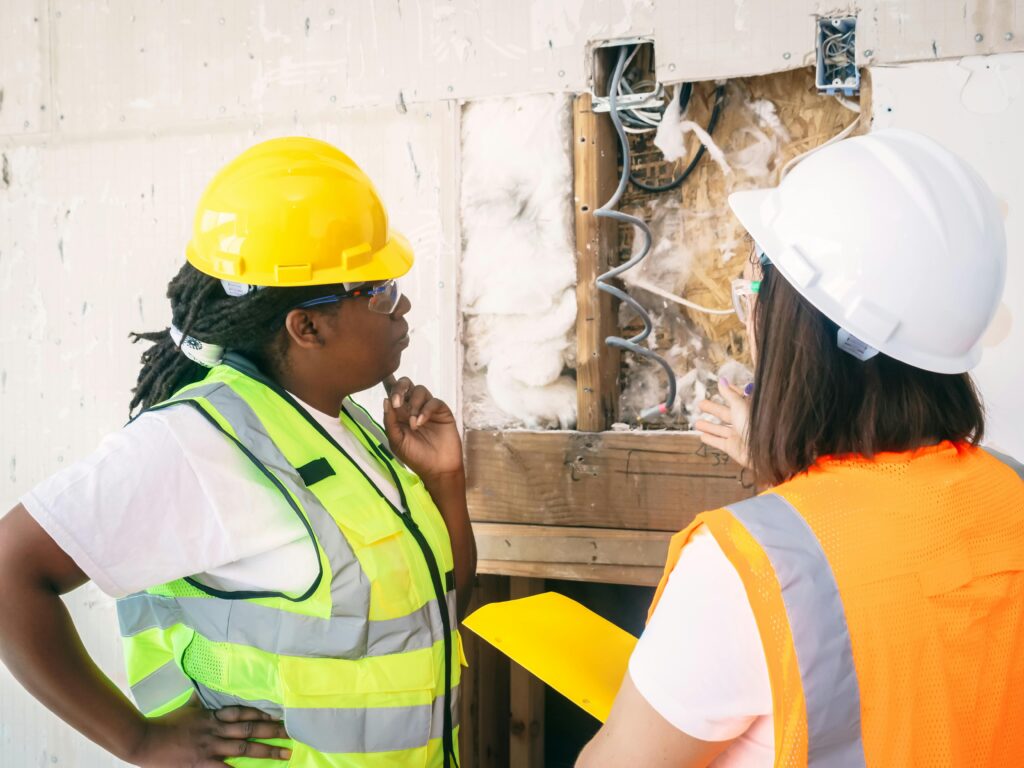Summary: Most people start in the electrical trades with zero hands-on skills or prior experience. Apprenticeships are built to teach you everything from the ground up, combining classroom lessons, hands-on jobsite training, and mentorship so you gain the knowledge and confidence to succeed.
Thinking about becoming an electrical worker but worried you don’t know the first thing about wires or circuits? You’re not alone. A lot of people look at the electrical trades and think, “I’d love to do that, but I don’t have any experience.”
Here’s the truth: very few people in the electrical trades started out with any electrical skills. Every licensed electrical worker you’ve ever met had a “day one” where they didn’t know how to bend conduit, read a blueprint, or troubleshoot a breaker. What they did have was the willingness to learn and the courage to take the first step. And that’s all you need!
So, where do you start and how do you gain the knowledge, experience, and skills you need to become a licensed electrical worker? Let’s explore.
How Can I Become an Electrician with No Experience?
Registered apprenticeships are the most direct path to a career in electrical work, and are designed to take you from zero experience to licensed professional. Apprenticeships assume you’re starting with little or no hands-on experience or knowledge, and build from there.
Step by step, an apprenticeship will give you the skills and confidence you need, through:
- Classroom and lab training, which teach you the theory, safety rules, and codes.
- On-the-job training, where you’ll learn alongside experienced electrical workers.
- Mentorship, to ensure you’re guided every step of the way.
Why Apprenticeships Are the Best Way to Start an Electrical Career

Apprenticeships are designed to set you up for long-term success. While you don’t need experience to begin, completing an apprenticeship gives you the mix of on-the-job training and classroom and lab instruction required to sit for your electrical license exam.
Other options, like trade school, may provide classroom learning, but those hours are unpaid and come with tuition costs. With an apprenticeship, you get the best of both worlds:
- Earn while you learn: During your apprenticeship, you’ll get paid for the time you spend working!
- No student debt: Apprenticeships are low to no cost.
- Hands-on learning: You’ll apply what you learn in the classroom and lab on real job sites.
- Clear career path: By graduation, you’ll have the hours, knowledge, and confidence to test for your license and get started in a high-demand field.
The bottom line: apprenticeships don’t just give you training, they give you a direct path into a career where your hard work pays off from day one.
What Are the Requirements to Apply for an Apprenticeship?
While you don’t need electrical experience, apprenticeships do have a few entry requirements:
- High school diploma or GED: This is typically the minimum requirement.
- You have to be least 18 years old
- Completion of one full year of high school algebra (or equivalent)
- Qualifying score on an aptitude test
- You must be drug-free
These requirements ensure apprentices are prepared to succeed both in the classroom and on the job site.
Pro Tip: Don’t worry if it’s been a while since you’ve taken algebra or a standardized test. Many applicants are in the same boat, and there are resources that can help you brush up before testing.
Start Your Electrical Career Today
Every successful electrical worker started where you are right now: with a curiosity and a drive and willingness to show up and learn. Nothing else!
Ready to start YOUR journey? Fill out this form to learn more about registered apprenticeships near you and kick off a rich and rewarding career in the electrical trades.
